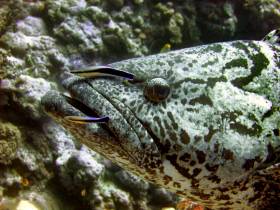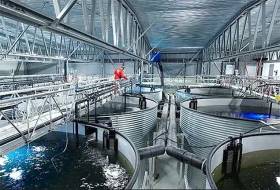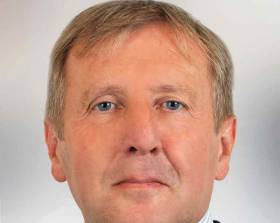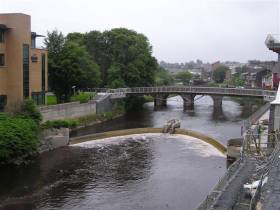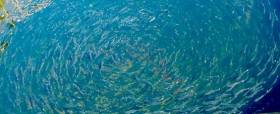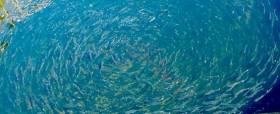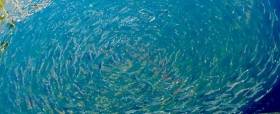Displaying items by tag: fish farm
State Body Concerned Over Mowi Ireland Plans for Connemara Fish Farm
Inland Fisheries Ireland (IFI) is expected to question a license application by the world’s largest farmed salmon producer for a fish farm in Ballinakill Bay off Cleggan in Connemara.
As The Sunday Independent reports today, Mowi Ireland plans to open public consultation shortly on its license application for a 22-cage fish farm in Ballinakill Bay.
The bay is within a special area of conservation, and part of a proposed natural heritage area.
The details of the project have been circulated to notifiable bodies, including IFI and the Sea Fisheries Protection Agency.
Both State bodies are believed to have serious reservations about the location due to potential impact on wild salmon and sea trout stocks.
Pot fishermen working in the area could also be impacted by an aquaculture project of this size, according to local interests.
Mowi Ireland, which is part of the Mowi Group Norwegian global seafood company, says it contributes over €20million to the domestic economy annually, working with some 920 Irish suppliers
Over the past 41 years, the company, formerly known as Fanad Fisheries and Marine Harvest, has employed 300 people between its salmon farms, hatcheries and processing facility in Donegal, Mayo, Galway, Cork and Kerry.
A Mowi Ireland spokesman confirmed that the company is “engaged in the initial stages of statutory consultation regarding a potential aquaculture facility off the Galway coast”.
“ The next steps will be set out by the Department of Agriculture, Food and Marine’s aquaculture and foreshore management division,” the spokesman said.
“The applicant will engage in a full round of public consultation in line with current aquaculture legislation,” the spokesman added.
IFI is the State agency responsible for the protection and conservation of freshwater fish and habitats, and has received a scientific report on the Mowi application for Ballinakill Bay.
IFI told The Sunday Independent it had "submitted observations on the application which will go to the Department of Agriculture, Food and Marine who will decide on the application and whether the license should be issued or not".
However, IFI is already seeking a judicial review of a license granted by the Aquaculture License Appeals Board to Mowi for an 18-pen farm in Bantry Bay, west Cork.
Mowi was granted permission last July to harvest up to 2,800 tonnes of salmon over a 24-month production cycle, with no restriction on the timing of harvesting, at Shot Head in Bantry Bay.
The Galway Bay Against Salmon Cages group has written to Minister for Marine Charlie McConalogue objecting to the new license application.
It argues that the proposed farm would have a “devastating impact on the Dawros (Kylemore River) – which flows into Ballinakill Bay- and on salmon and sea trout populations and angling tourism on the Delphi, Erriff, Culfin, Bunowen, Carrowinskey, Owenglen and Ballynahinch rivers.
Mowi Ireland’s managing director Jan Feenstra has announced plans to retire on July 1st, 2022, after 40 years working in salmon aquaculture.
Mowi CEO Ivan Vindheim has paid tribute to Feenstra, stating he is “ most grateful for Jan’s long tenure with our company, during a period that has seen our Irish business unit grow into a world-leading supplier of premium organic salmon”.
Read more in The Sunday Independent here
Concerns Over Mass Use Of ‘Cleaner Fish’ In Irish Salmon Farms
Campaigners against salmon farms have raised concerns over the state of Irish wrasse stocks after it was confirmed the fish have been taken en masse to help clean lice from farmed salmon.
As Donegal News reports, a number of salmon farms in Donegal, Galway and other areas owned by Mowi — the former Marine Harvest — have between them moved in tonnes of wild wrasse, a known ‘cleaner fish’ that feeds on sea lice, over the past four years.
Responding to a Dáil debate question from Catherine Connolly TD this past summer, Marine Minister Michael Creed confirmed that “several special of cleaner fish are used in Ireland as a method of controlling sea lice”.
But there are fears that the mass withdrawal of wrasse and other such species from the wild could tip the balance of Ireland’s delicate marine ecosystem.
“The absence of wild wrasse in bays may result in stress and disease in other large species of fish which rely on wrasse to keep them clean of parasites,” said Billy Smyth, chair of Galway Bay Against Salmon Cages.
Donegal News has much more on the story HERE.
Land-based Fish Farms "More Sustainable", Inland Fisheries Leader Says
Inland Fisheries Ireland chief executive Dr Ciaran Byrne has said that the evidence is “pointing towards” moving fish farms onshore for a more sustainable aquaculture industry writes Lorna Siggins.
Dr Byrne was responding to a decision by the Danish government to halt any further fish farming in coastal areas.
Denmark’s environment minister Lea Wermelin said late last month that future licensed fish farming would be based on land.
'the evidence is “pointing towards” moving fish farms onshore'
Danish newspaper Politiken reported Ms Wermelin as explaining that the move was for the sake of the marine environment, as she believed coastal areas and inland waters were “overloaded” with nitrogen.
Some 60 per cent of Danish farmed fish is rainbow trout, with 27 per cent produced in sea cages developed since the 1970s. Over 200 freshwater farms are mainly based in the Jutland area.
Ms Wermelin’s move overturns a decision by a previous Danish government to permit more fish farms in coastal areas if facilities could guarantee removing nutrients, particularly nitrogen, released into the water column.
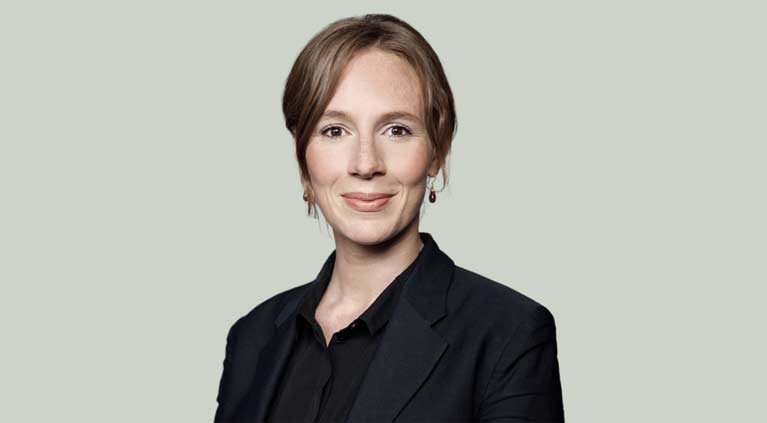 Denmark’s environment minister Lea Wermelin
Denmark’s environment minister Lea Wermelin
A new administration voted in last June is led by Social Democracy, Ms Wermelin’s party, with the support of three other political parties.
“We have major challenges with oxygen deficiencies, and we can see that nitrogen emissions are not falling as expected. Therefore, it is the government’s position that there is no room for more or larger facilities in Denmark,” Ms Wermelin said.
Her decision was welcomed by the Danish Anglers Association, which described it as a victory for the marine environment and for wild fish stocks.
However, the Danish Aquaculture organisation described it as a “sad decision” and one which was very serious for the entire aquaculture sector in Denmark.
Dr Byrne said that Inland Fisheries Ireland, the State organisation managing publicly-owned freshwater fisheries, had “always argued for a sustainable aquaculture industry, one in which farmed fish are not negatively impacting on wild fish”.
“This can be achieved in tightly controlled circumstances - however with increasing climatic and environmental variables, this is becoming more difficult to achieve and sustain,”he said.
“ As a result, the evidence is pointing towards onshore fish farms as the appropriate method towards ensuring a sustainable industry,” he said.
A spokeswoman for Minister for Agriculture, Marine and Food Michael Creed said he would not be commenting on a Danish government decision.
Danish aquaculture production of rainbow trout amounted to over 45,000 tonnes in volume in 2016 and over €156 million in value.
A report three years ago for the Irish aquaculture industry said that capital costs were too high to attempt land-based projects in Ireland.
The study for the Irish Salmon Growers’ Association (ISGA) by Danish-born fish farming pioneer Ivar Warrer-Hansen explained how rearing salmon in closed containment is perceived as being more attractive than at sea.
This is due to reduced interaction with native or wild stocks and greater control over the immediate production environment, including disease risks and protection from coastal storms.
Land-based farming of finfish species such as eel, tilapia and catfish has developed internationally, while there has also been some success with sea bass, turbot and perch.
Pilot-scale projects in Canada and in the US have proved it is possible to rear salmon to “market quality” in these systems, and Norway, the European leader in salmon farming, is one of a number of countries investigating land-based options.
The study for the ISGA calculated the capital costs for land-based aquaculture in Ireland at around €33 million for a 5,000-tonne farm, based on 2015-16 cost figures.
Capital costs would make it “difficult to be competitive, especially during those regular periods where production costs rise above-market prices”, Warrer-Hansen’s report stated.
Norway’s largest land-based salmon farm plans to have with an annual capacity of 50,000 tonnes when built, and it was recently reported that Norwegian entrepreneur Geir Nordahl-Pedersen wants to detonate a mountain to create a 500m x 90m basin which would accommodate about 30 cages.
Creed Discontinues Mowi Fish Farm License in Kerry
Minister for Marine Michael Creed has discontinued a license held by Norwegian multinational Mowi for a fish farm in Co Kerry.
A breach of license conditions at a smolt hatchery run by the Norwegian aquaculture company’s Irish division in Donegal has also been identified by Mr Creed’s department.
A third investigation by his department found no “provable” breach of license conditions at a salmon and rainbow trout farm run by the same company near Inishfarnard in Coulagh Bay, Co Cork.
Mr Creed’s decision to discontinue a fish farm license for the first time was taken under the Fisheries (Amendment) Act, 1997, which permits him to revoke or amend a license if he considers it in the public interest, or if he is satisfied of a breach of conditions.
Mowi, the world’s largest farm-reared salmon company, has its headquarters in Norway, and runs farms in Chile, Canada, Scotland, Ireland and the Faroe Islands. It employs almost 300 people at over a dozen fish farms in five coastal counties here.
Its global operation employs over 14,000 people in 24 countries and recorded a turnover of almost €3.6 billion in 2016.
As reported in today's Irish Examiner, investigations by the Department of Agriculture, Food and Marine identified overstocking at Silver King Seafoods Ltd at Deenish in Ballinskelligs bay, Co Kerry three years ago.
The Kerry farm is licensed to harvest up to 500 tonnes (dead weight) of salmon in any one year, but harvested just over 1100 tonnes in 2016 – over 121 per cent more than permitted.
The breach is “significant”, the department says, and the decision to rescind the license under section 68 of the Fisheries (Amendment) Act 1997 is “proportionate and warranted”.
“The company was fully aware of the limits set by the specific condition of the licence governing harvest tonnage,”it notes.
“Breaching licence conditions serves to undermine public confidence in the regulatory system, and therefore enforcement by the department of licence conditions is in the public interest,” it says.
The department says that an increase of 121 per cent in stock harvested from the site must increase its effluent discharge.
Mr Creed’s department also identified a license breach at a freshwater smolt cultivation site run by Comhlucht Iascaireachta Fanad Teo T/A Marine Harvest Ireland at Lough Altan, Procklis near Falcarragh, Co Donegal.
Under the license terms, annual production should not exceed 2.5 million smolts (two point five million) at the plant, which provides juveniles for seawater farms.
However,the department opted not to revoke the license, but to amend it, due to the “very serious commercial consequences for the company”. The department’s inspector had recommended revoking the license.
The department also decided to amend the license at the Inishfarnard farm in Co Cork where it found “no provable breach” in “circumstances where evidential issues may arise as to what technically constitutes a smolt”.
The license amendment is to “avoid a similar situation occurring in the future”, it states. Its inspector recommended discontinuing this license.
Mr Creed declined to comment on the decisions. Mowi/Marine Harvest said it was seeking legal advice and would comment further. It said it was “disturbed” by the fact that it had sought a renewal and improvement of the Deenish license back in 2007.
Environmental group Salmon Watch Ireland said it “welcomed the fact that the Department of Agriculture, Food and the Marine is doing its job”.
Friends of the Irish Environment (FIE) welcomed the decision in relation to the Deenish fish farm in Co Kerry.
However, FIE spokesman Tony Lowes urged Mr Creed to reconsider his decision in relation to the two other fish farms, given the recommendations by the department’s own official.
“The high levels of overstocking means that the pressures on the environment have not been assessed, as required by European and national law. The overstocking also undermines the department’s sea lice control, where the number of lice is based on samples taken multiplied by the number of fish licensed,” Mr Lowes said.
Mr Lowes said that a “failure to deal vigorously with significant breaches of licence conditions is a result of the conflict of interest within the department between its role as industry developer and as industry regulator”.
“The Government must reorganise the department so that the Marine Institute and the Sea Food Protection Authority are administered by a non-fisheries division of the department,” he said.
Connemara Salmon Farm Freshwater Plans To Face High Court Review
#FishFarm - Permission granted for a salmon farm to extract water from a Connemara lake is facing a judicial review, as the Connacht Tribune reports.
An Bord Pleanála recently greenlit plans by Bradán Beo Teo, the region’s biggest producing salmon farm enterrprise, to extract fresh water from Loch an Mhuilinn for cleaning and disease treatment purposes after the company was previously blocked by Galway County Council.
But now local environmental activists are behind a proposed High Court review of the way the planning board arrived at its decision.
The Connacht Tribune has more on the story HERE.
Tyrone Fish Farm Escapees Number In Hundreds Of Thousands
#Angling - Hundreds of thousands of rainbow trout escaped from a commercial fish farm in Co Tyrone last year, according to the Loughs Agency.
BBC News has details on the cross-border body’s report into the incident on the River Strule at Newtownstewart in August 2017, which estimates some 387,000 female rainbow trout entered the river system.
Despite concerns over potential widespread impact on the wild salmon and trout fishery in the area, it’s believed the majority are still concentrated in the lower Strule, lower Derg and upper Mourne.
Local anglers are asked to continue taking the farmed fish from these rivers and reporting their catches, particularly from important spawning grounds, as mass removal is not an option.
Inishturk Fish Farm Application Tops €200k
#FishFarm - Bord Iascaigh Mhara (BIM) has spent over €200,000 on its application for a proposed salmon farm off Inishturk in Co Mayo, as the Irish Examiner reports.
The planned project, much like the withdrawn proposal for Galway Bay for an even larger-scale fish farm, has faced opposition from local anglers and conservationists, who have lambasted the €216,000 spend — on an environmental study, legal advice and communications consultancy — as a ‘waste’ of taxpayers’ money.
“It is appalling that BIM has wasted more than €216,000 on a salmon farm licence application for Inishturk when it should be the salmon farm operator who is required to apply,” said Billy Smyth of lobby group Galway Bay Against Salmon Cages.
BIM, the State agency for Ireland's sea fisheries and aquaculture, says the Inishturk project could produce 4,000 tonnes of farmed salmon annually, and create as many as 75 direct and indirect jobs.
The Irish Examiner has more on the story HERE.
Campaigners Fear ‘Back Door’ Salmon Farming Via Galway Bay Test Site
#FishFarm - Could proposals for the Galway Bay Marine and Renewable Energy Test Site provide a back door for fish farming in the bay?
That’s the concern of local campaigners after a Statutory Instrument was enacted earlier this month that changes the licensing laws for salmon farming for research purposes, as the Connacht Tribune reports.
The new law allows for salmon farms under 50 tonnes to operate without an Environmental Impact Assessment – one of the issues before the withdrawl last year of controversial plans for what would have been one of the largest aquaculture projects in Europe off the Aran Islands.
According to Billy Smyth, chair of campaign group Galway Bay Against Salmon Cages, the move confirms suspicions that the Marine Institute test site off Spiddal could be used for fish farming.
“Let the Marine Institute just ask the Norwegians for the results of their research and save money,” he said.
The public consultation on the foreshore lease application for upgrades to the present test site closed earlier this month.
But contributions are still being sought on a new strategy for coastal communities with fishing and fish farming interests under the FLAG West scheme, following a series of public meetings in Co Galway last week. Galway Bay FM has more HERE.
IFI Extends Consultation On Fish Farm Phase-Out
#FishFarm - Inland Fisheries Ireland (IFI) has announced an extension of its public consultation on freshwater trout production.
Intended to facilitate the fullest possible consideration by the Board of IFI of stakeholders' views, the consultation period originally due to close on 19 August has now been extended to 19 September.
Stakeholders are encouraged to make a submission through the consultation process, the findings of which will be comprehensively reviewed and considered by IFI, with a report made to Minister of State Seán Kyne’s department, before any further steps are taken. There will be no disruption to the supply of fish during this process.
Information on the consultation is available on the IFI website or from any IFI office. Submissions should be made in writing on or before 5pm on Monday 19 September to [email protected] or by post to Fish Farm Consultation, Inland Fisheries Ireland, 3044 Lake Drive, Citywest Business Campus, Dublin D24 Y265.
Irish Water Prosecuted Over Midlands River Fish Kill
#FishKill - Inland Fisheries Ireland (IFI) has successfully prosecuted Irish Water over a chemical discharge on 18 August last year that causing a significant fish kill on a tributary of the Tullamore River.
At a sitting of Portlaoise District Court on Friday 15 July, Judge Catherine Staines heard evidence from Michael Fitzsimons, a senior fisheries environmental officer with IFI, that following a pollution report received from Irish Water, IFI carried out a detailed investigation on the Clodiagh River.
Over 3,000 fish mortalities were estimated over a 4km stretch of the river, consisting predominantly of trout along with other species such as salmon, lamprey, minnow and stoneloach.
The fish kill was as a direct result of a chemical discharge from an accident at the Irish Water plant in Clonsalee, Co Laois. Irish Water entered a guilty plea.
Judge Staines directed Irish Water to pay IFI’s legal costs of €5,016 and to cover the full cost of the rehabilitation works to be carried out downstream of the incident area. A development plan will be formulated by IFI in the coming weeks.
The judge did not impose a fine on the basis that it would be the Irish taxpayer paying for the incident. She also instructed Irish Water to carry out a full review of its Waste Water Treatment Plants (WWTP) and provide a report to her by 21st July 2017.
Judge Staines stated that she did not want to see an incident like this happening again.
“This was a serious pollution incident which will take a considerable number of years for the river to recover," said Amanda Mooney, Shannon River Basin District director with IFI.
"I am pleased with the outcome of the case and the provision for vital rehabilitation works to assist fish stocks to recover naturally.”
Judge Staines adjourned the case until 21 July 2017 to allow sufficient time for the rehabilitation works and WWTP review report to be concluded.
In other news, submissions are open for the consultation on plans to phase out fish farming at three of four IFI facilities it currently operates around Ireland.
As previously reported on Afloat.ie, operations in Roscrea, Co Tipperary; Cullion in Mullingar, Co Westmeath and Lough Allua in West Cork are affected by the restructuring plan.
Facilities at Cong in Co Mayo will be retained or research and stocking purposes, but rainbow and brown trout will no longer be farmed for sale.
Submissions should be made in writing before 5pm on Friday 19 August to [email protected] or Fish Farm Consultation, IFI, 3044 Lake Drive, Citywest Business Campus, Dublin D24 Y265.



























